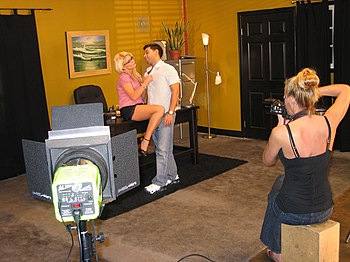
On April 19, Utah governor Gary Herbert signed a resolution passed and forwarded to him by both houses of the state’s legislature: “[T]he Legislature of the state of Utah, the Governor concurring therein, recognizes that pornography is a public health hazard leading to a broad spectrum of individual and public health impacts and societal harms; and recognizes the need for education, prevention, research, and policy change at the community and societal level in order to address the pornography epidemic that is harming the citizens of Utah and the nation.”
For the moment, the resolution has no real legal effect. It’s just a statement of sentiment and resolve to eventually do … well, something. Par for the course in political demagoguery, in other words. It is nonetheless, to use a word that appears down in the resolution’s detailed list of complaints, “toxic” in two ways.
The first is obvious: We have a First Amendment for a reason, and claims that it only extends to whatever speech and press politicians don’t think they can make hay by attacking this week don’t stand up to scrutiny.
I don’t have to like porn (I’m not going to try to convince you I’ve never looked at it). You don’t have to like porn (maybe you do, maybe you don’t). Governor Herbert and the Utah legislature don’t have to like porn (yes, I do wonder). If you don’t like it, don’t view it. Unless the participants in it are children or adults acting under compulsion, whether or not anyone else views it is None. Of. Your. Business.
Secondly, resolutions of this kind further degrade and politicize the terms “public health” and “epidemic.” At one time, those terms were arguably useful. They referred to legitimate epidemiology, i.e. the spread of pathogens (the prime example being the tale of John Snow tracing a cholera epidemic to a particular well and ending it by removing the pump handle).
Volitional human behavior — such as having sex in front of a camera or watching people have sex on camera — isn’t a pathogen per se, any more than “gun violence” — another “public health” hobgoblin raised by demagogues for political purposes — is.
And as has historically been the case with “gun violence” per the Centers for Disease Control et. al, Herbert and company fudge the evidence to reach the results they want regardless of the facts. As the Free Speech Coalition notes, “access to adult entertainment correlates pretty clearly historically and geographically with declines in sex crime.” Which may explain why rape reports declined by 14% between 2005 and 2014 in Utah, the state with America’s highest porn consumption rate.
Perhaps Herbert and his pals should work on ending the remaining 86% of rapes instead of on obscene grandstanding.
Thomas L. Knapp (Twitter: @thomaslknapp) is director and senior news analyst at the William Lloyd Garrison Center for Libertarian Advocacy Journalism (thegarrisoncenter.org). He lives and works in north central Florida.
PUBLICATION/CITATION HISTORY
- “Utah’s Porn Resolution is an Obscenity,” by Thomas L. Knapp, Ventura County, California Citizens Journal, 04/20/16
- “Utah’s Porn Resolution is an Obscenity,” by Thomas L. Knapp, St. George, Utah Spectrum, 04/21/16
- “Utah’s Porn Resolution is the Real Obscenity,” by Thomas L. Knapp, CounterPunch, 04/21/16
- “Utah porn resolution an obscenity,” by Thomas L. Knapp, Newberry, South Carolina Observer, 04/25/16


